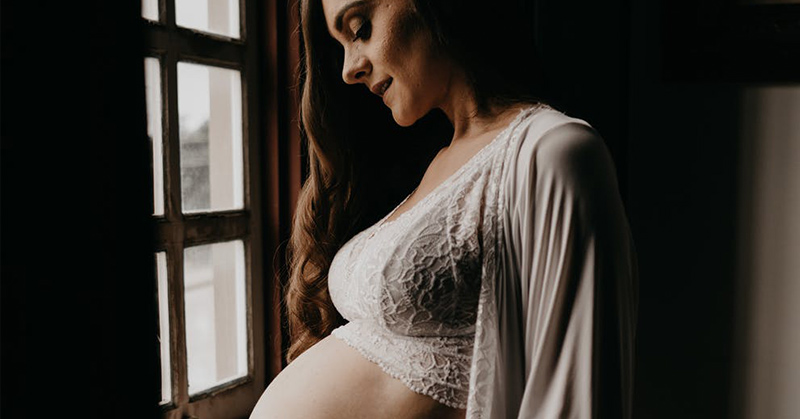Getting pregnant at 40 must be an exhilarating experience for all the moms out there. You are in a better place financially, mentally and emotionally to take on the responsibility of a baby. In your 20s and 30s, you are under the constant stress of working on your career while raising your children. But in your 40s you are in a much better position to spend more time with your child and take care of them well. This makes you a more patient, calm and understanding parent.
According to the Centers for Disease Control and Prevention (CDC), the birth rates of first-time births among women post 35 years of age have seen an incredible rise since the early 2000s [1]. In the United States women aged 40 to 44 had 114,730 of the 3.8 million babies born in 2017, while women who were 45 and older had 9,325 [2]. Women in their 40’s have the same odds of having a healthy pregnancy as any woman in their 20s or 30s. However, there are a few complications and disadvantages which can be overcome by following these tips to help you have a safe and healthy pregnancy.
Fertility Treatments
Fertility is one of the biggest challenges in getting pregnant in your 40s. Women can naturally conceive even after their most fertile years, but, unfortunately, the chances are much slimmer once moving into your 40’s. This is why if you are having difficulty in conceiving, speaking to a fertility specialist to understand the right treatments available for you is best. With a plethora of fertility treatment available from IVF to using donor eggs, women have various options to choose from. And the good news is that the chances of conceiving through fertility treatments are as high as 50 % in your 40s.
Pregnancy and Your Body
While it is a known fact that our body is prone to chronic conditions like osteoporosis, diabetes, thyroid or blood pressure, later in our life compared to in our 20s or 30s. There is also an increased risk of miscarriages and still-births in older pregnancy. Pregnancy in your 40s can also be more physically challenging compared to when you were younger and able to more easily absorb those aches and pains.
However, if you have an active lifestyle, eat healthily and go for regular health check-ups, you will have fewer problems when pregnant, regardless of age. Living a healthy life is a prerequisite for women trying to get pregnant post 40. Talk to your doctor and understand the different kinds of physical activities you can continue into your pregnancy to keep your weight in check and body healthy.
Genetic Issues
As mentioned by What To Expect, “First, we have to deal with the fact that our eggs have been around for longer. Women are born with a lifetime supply of eggs. Though the vast majority continue ripening without incident as we age, each passing year very slightly increases the risk that those eggs will have certain chromosomal abnormalities. For instance, while a 25-year-old mom-to-be has a 1 in 1,200 chance of delivering a baby with Down syndrome — a genetic condition caused by the presence of an extra copy of chromosomes — a 40-year-old’s odds are 1 in 100, according to the National Down Syndrome Society.”[3]
Hence it is advised to go for genetic screenings to know if your baby is likely at the risk of having any genetic problems. Your blood test reports will indicate the chance of your baby having Down Syndrome. So regular prenatal tests and visits to the doctor is a must to keep every aspect of your pregnancy in check to avoid any discrepancies.
Twins and Multiples
Another common phenomenon in older pregnancies is the chance of conceiving twins or multiples. The reason behind it could vary from fertility drugs and treatments to naturally producing multiple eggs. Women aged 35 and above are more likely to conceive twins as their hormone Follicle Stimulating Hormone rises with age. The FSH is responsible for the development of eggs in the ovaries before they are released, resulting in multiple births. And having twins also means the risk of premature births.
Labor and Birth
While conceiving your baby is most likely top of your mind, it is very important to also focus on the birth of the baby. Labor and delivery complications increase with age. The chances and risks of preterm labor and birth are also higher if this is your first baby. The rate of cesarean birth is about 25% in your 20s compared to about 50% in your 40s. [4] Hence talk to your midwife or doctor about the risks of labor and delivery considering your age and the conditions you have.
However, with a healthy and active lifestyle, you should be able to reduce the risk of complications in labor and delivery. Eat a healthy diet and ask your doctor to revise your medication best suited for your pregnancy. Vitamin supplements including folate, iron, and/or a prenatal multivitamin may be advised to nourish your body in a well-rounded manner. Talk to your medical practitioner if these are right for you.
Disclaimer: This information is not intended to be a substitute for professional medical advice, diagnosis or treatment and is for information only. Always seek the advice of your physician or another qualified health provider with any questions about your medical condition and/or current medication. Do not disregard professional medical advice or delay seeking advice or treatment because of something you have read here.
Sources
- https://www.cdc.gov/reproductivehealth/infertility/index.htm
- https://www.whattoexpect.com/pregnancy/ask-heidi/older-moms-and-pregnancy.aspx
- https://www.usatoday.com/story/news/2018/05/19/childbearing-why-women-40-s-having-more-babies/624028002/
- https://www.nih.gov/news-events/news-releases/older-mothers-more-likely-younger-mothers-deliver-cesarean

